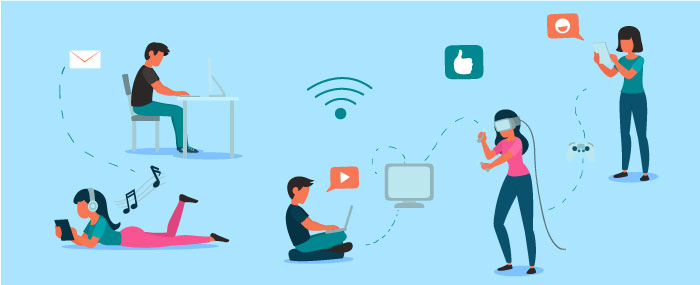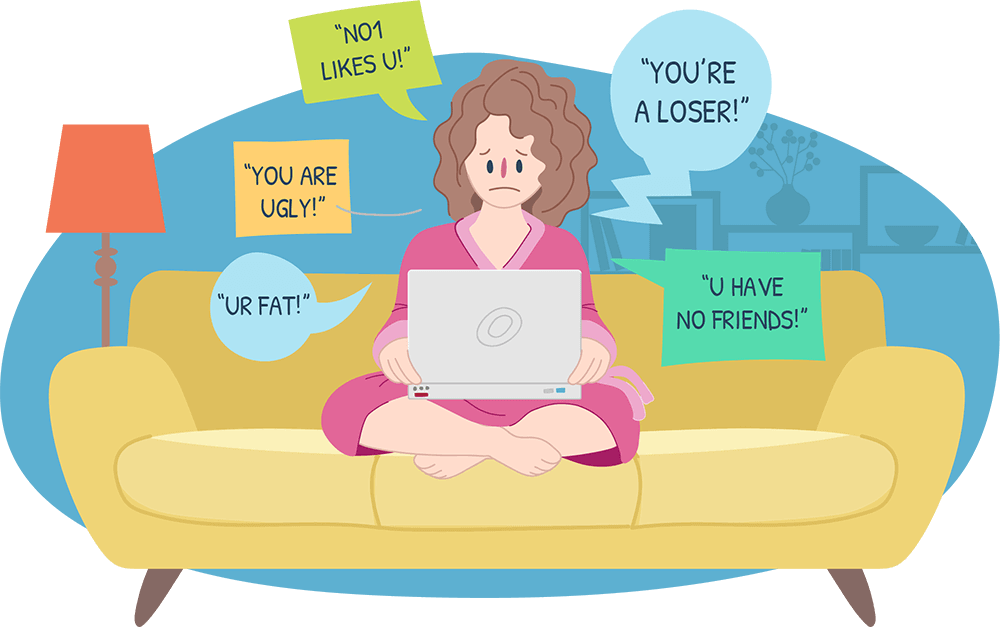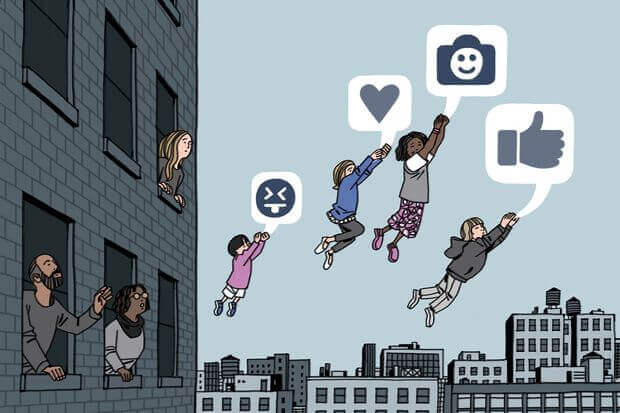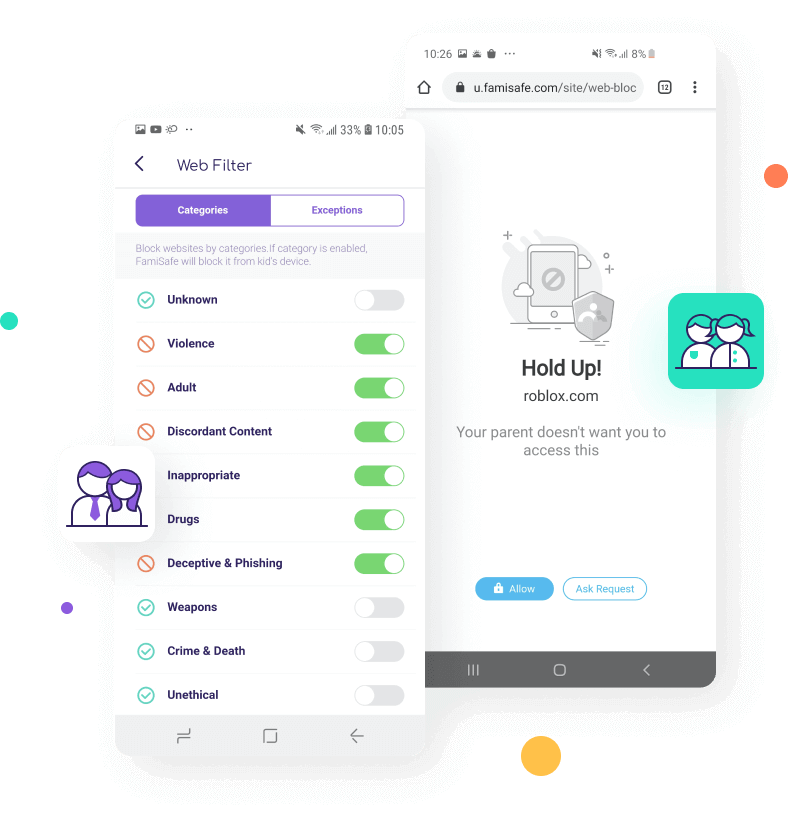Teens and Technology | Parents Worries and Solutions.
Parents Worries and Solutions.
ALL TOPICS
- Parent Monitoring Tips
- Monitoring Apps
- Social Media Parental Control
Jan 10, 2025 Filed to: Parent's Guide Proven solutions
What Do the Statistics Say?
Teenagers, who are also popularly known as digital natives of the contemporary world, have grown up with their lives revolving around technology. For the most part, they haven't seen or experienced life any other way. From their phones and laptops to social media, games, and apps, technology has defined their lives for both better and worse. Consequently, there are alarming figures of teenagers using technology in their everyday lives, with 93% between 12 to 17 years of age going online on average. Around 73% of them are also active social media users.

However, this isn't what's alarming about these stats. What's rather worthy of attention is that most teens are entirely oblivious to online safety hazards. This is because over 50% of them have shared personal information, including videos, photos, and contact details with a stranger at some point in their lives.
Teens and technology are a combination that could either work out for the best or the worst depending on factors surrounding its usage. However, for many of them, modern technology is as crucial as breathing. This is because their self-expression largely depends on social networking, messaging and gaming, etc. Even their friendships and dating lives begin digitally. A major propeller of their internet use is their access to mobile phones, as almost 75% of teenagers have smartphones.
Is the Internet Bad for a Teenager?
Understanding teens and technology can turn out to be more complicated than one can expect. When it comes to the internet, it isn't exactly filtered, and the line between what's good and bad can get very vague and blur. This is because even if your child uses it responsibly, there is a good chance that they may get involved in activities without understanding their consequences.
For many years, several people have linked high mental health issues among teenagers in the US with the increasing use of digital devices. Even though there isn't much research to back the claims, the impact of technology or the internet, to be more specific, cannot be disregarded completely either.

Over the last decade, a massive surge in the use of smartphones and the internet has been observed alongside increasing suicide cases among all age groups. Though it's too early to claim that smartphones may have caused these suicides, a correlation cannot be wholly discounted. Moreover, teenage depression rates have also increased immensely with the increasing use of social media.
The internet is as good or bad for your teen as you would like it to be. At its best, the internet is a hub of knowledge for them, but at its worst, it can seriously hamper their mental wellbeing. This is why teens and technology are either the most fruitful or the most dangerous combination ever.
The Top Online Threats for Teens
The internet isn't a haven for your child or even you for that matter. With its expanding reach in every corner of the world, it is inevitable to come across different kinds of people. Cybercriminals and hackers have increasingly infested the internet to exploit anyone at any time. Therefore, to protect your kids, it's important to understand the dangers awaiting them in the first place. Here is a list of online risks your child could become victim to.
1. Cyberbullying:
It is one of the most prominent cyber-crimes to have existed in the world of teens and technology. Your child's bullies are no longer restricted inside the school boundaries and can easily find their way into their life through social media, texting, etc. Young people do not only become helpless in the face of it but are also embarrassed to even bring it up to you. It is also one of the leading causes of teen suicides as there have been multiple accounts of them.

2. Sexting:
Explicit forms of texting where nude pictures or videos are exchanged can pose a huge threat to your child's online safety. There is no guarantee of whether those pictures remain confidential or get leaked. It can result in severe consequences for your child's reputation and self-confidence.
3. Pornography:
If your child has access to the internet and a computer, they will likely come across pornographic content if left unmonitored for long. Children are too naive to understand that pornography can affect their ability to have fulfilling relationships in the future. It also creates unrealistic expectations about sex in their mind, confusing them further and ruining their self-esteem.

4. Identity theft:
This is not only a risk associated with those who use credit cards but also those who don't have any assets yet to rob off from. Cybercriminals can misuse your child's blank slate of credit records and use them to open new accounts. If done so, the impact it has on your child's future is irreversible. It hinders their ability to get a job or purchase anything.

5. Online predators:
Teens often don't realize that the 16-year-old boy offering to be their friend online may be a 50-year-old man looking for his next prey. The internet is an online predator's heaven and helps them connect with several of them through chat rooms and social media. Furthermore, their intentions might not just be limited to sexual exploitation but also human trafficking.

Tips to Keep Your Teen Safe Online:
1. Don't let your child use devices at night.
A lot of inappropriate things have a better chance of happening at night when everyone's asleep. Therefore, create a separate space where their devices can be kept at night or set a time limit, after which their devices can be confiscated. Hold them accountable for not adhering to time limits and subject them to penalties like going a week without the phone, for example.
2. Educate, educate and educate
Before even giving your child any digital devices, let them know about the possible risks of using one. Make them aware of confidential information like PIN codes and passwords that must never be told to someone else. Make them read articles and other content about not sharing any personal media like photos, videos, etc. Constantly encourage them not to engage with strangers online just like they wouldn't if they're outside.
3. Be a friend with kids online
Have your child add you as a friend on all of their social media profiles before someone else does. This not only proves to be a fun way of staying connected but also develops trust between you two. This is also a great way of knowing what your child is up to while knowing all the particular app's potential dangers.

4. Look for Signs of Trouble
While it is encouraged that you keep an eye on everything your child does, you must not become overly obsessive about it and give them the required space. In the meanwhile, be extra cautious when they are displaying behavior such as hiding their devices or creating separate social media accounts.
Use FamiSafe to Protect Your Kids
If you're wondering what FamiSafe is, it is a messiah for parents of the digital age. It is a parental control application that helps you have more control over your child's online habits through several features. Here's a look at some to ensure your teen's online safety.
- Web Filter & SafeSearch
- Screen Time Limit & Schedule
- Location Tracking & Driving Report
- App Blocker & App Activity Tracker
- YouTube History Monitor & Video Blocker
- Social Media Texts & Porn Images Alerts
- Works on Mac, Windows, Android, iOS, Kindle Fire
1. Screen Time Schedule
The biggest concern most parents face with their teens is the unreasonable amount of time they spend online. Simply telling them not to do so may not always work, and that's where FamiSafe's screen schedule feature helps you set a time limit for how long they can be on the screen. It also lets you see what their daily usage of apps is.
2. Filter Websites & View History
With this feature, you can do what most parents dream of doing—Block unfiltered, inappropriate websites from your child's device. You can also take a look at their browsing history in incognito or private mode remotely.
3. Monitor Suspicious Text

This feature helps you create a list of all the suspicious or offensive words you can think of. If your child uses any of those in their search bars, social media, or YouTube, the app alerts you in real-time.
While it's important to set controls in your teen's life, it is also important to note that they learn best through example. As parents, you have to do everything in your power to protect your teens the same way online as you would in the real world. Always reflect the values of resilience, self-esteem, and empathy in your own actions in the real world as well as online to have an impact on your child's online and offline presence. Most of all, stay involved in their lives and communicate openly about sensitive matters such as cyberbullying, pornography, and other online world evils.

Moly Swift
staff Editor